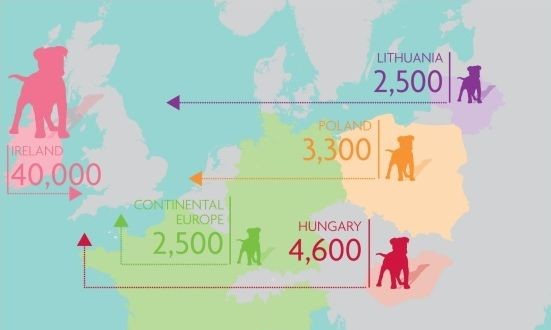RSPCA welcomes European Parliament resolution to halt illegal cat and dog trade

The European Parliament (EP) is calling on the European Commission to take action to try to stop the illegal trafficking of dogs and cats.

Become a member for unlimited access
Remove all content restrictions with a membership account. First-year special offer pricing. Cancel any time.
You have read 2/2 free articles this month.

How many members should have access to the subscription?
Monthly
Yearly
Save £9.89
No, thanks
I already have an account

The European Parliament (EP) is calling on the European Commission to take action to try to stop the illegal trafficking of dogs and cats.
